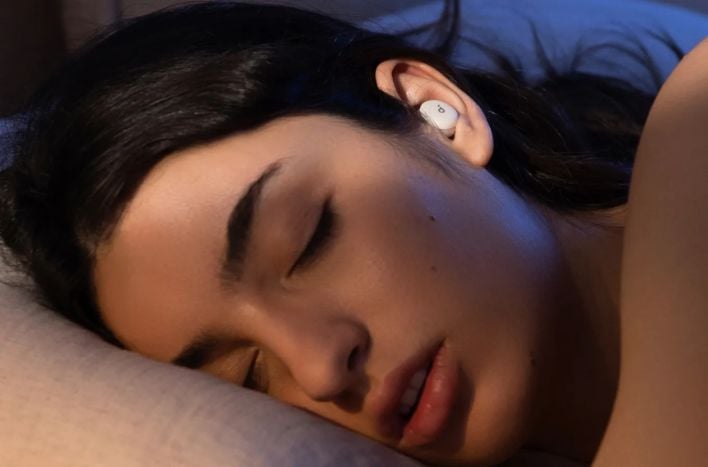Anker's New Soundcore A30 Earbuds Promise To Improve Your Sleep, Here's How

Building on the success of its predecessors, the Sleep A10 and A20, the A30 features a refined design that is 7% slimmer and centered around invisible comfort, making these earbuds compact and discrete enough for side sleepers. Made with gentle soft-touch materials, the A30 minimizes pressure, allowing for uninterrupted slumber throughout the night. For an even more customized fit, users can swap between four pairs of silicone ear tips, three pairs of memory foam ear tips, and three pairs of ear wings.
With a proper fit and seal, the A30 should have solid passive noise isolation (dulling high-frequency sounds). If that's not enough, the buds now sport Smart ANC that actively attenuate low-frequency disturbances by up to 30 decibels.

Perhaps the most unique feature is the A30's Adaptive Snore Masking System. The charging case, equipped with mics, intelligently monitors snoring sounds in real-time. It analyzes the volume and frequency of the snoring, then communicates with the earbuds to generate tailored masking audio. Soundcore claims that the masking system is effective up to 65 dB with 93% accuracy, allowing partners to sleep undisturbed. No word if and how the algorithm works in cancelling out the wearer's own snores, though.
The Sleep A30 also has something called AI Brainwave Audio, in which binaural beats are generated and delivered to each ear to synchronize brainwaves with calming patterns, ideal for sleep, meditation, or concentration.
To top that off, the device offers automatic sleep monitoring with position tracking and a personalized alarm function that wakes only the wearer. With a single charge, the A30 claims nine hours of playtime with ANC on (or 6.5 hours with Bluetooth media streaming), extending to 45 hours total with the charging case.
Available for preorder now on Kickstarter (with early backer discounts), the Soundcore Sleep A30 is slated for a full release on Amazon.com and Soundcore.com in August, priced at $230. That's quite a lot more than the $150 A20, so hitting up the Kickstarter deals would be a good idea at this point.

